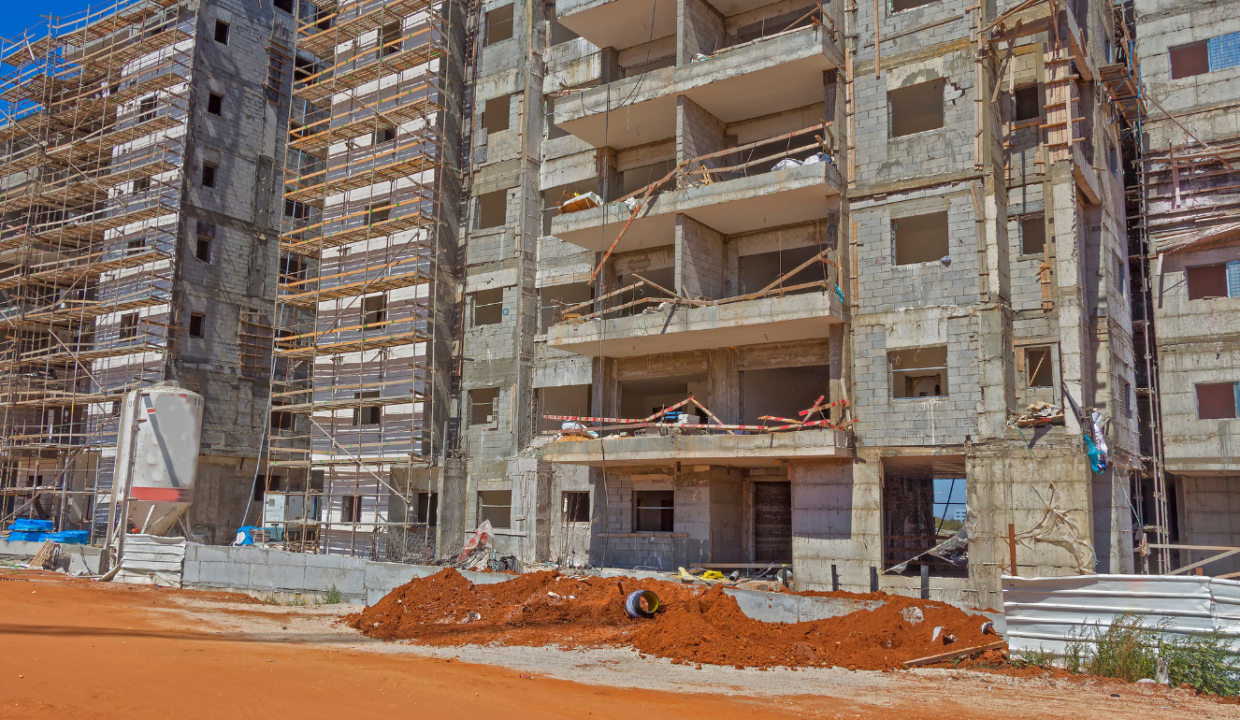
The Indian real estate market continues to be a lucrative destination for Non-Resident Indians (NRIs) seeking to invest in their home country. With a growing economy, stable property prices, and potential for rental income, real estate offers a compelling option. However, when it comes to choosing a property, NRIs face a unique decision: invest in a ready-to-move-in property or an under-construction project.
Property Epicenter, your trusted NRI property management company in Gurgaon, understands the specific considerations NRIs face. In this blog post, we’ll delve into the pros and cons of investing in under-construction projects, empowering you to make informed decisions for your real estate journey in India.
Pros of Under-Construction Projects for NRIs
- Potentially Lower Entry Point: Under-construction properties are often priced lower than completed ones, especially in the initial stages of development. This can be particularly attractive for NRIs seeking to maximize their investment returns.
- Capital Appreciation: As the project progresses toward completion, the property value is likely to appreciate. This price increase can lead to significant gains upon resale or renting the property at a higher rate in the future.
- Flexible Payment Plans: Developers often offer attractive payment plans for under-construction projects. These plans may involve staggered payments spread over the construction period, allowing NRIs to manage their investment capital more effectively.
- Modern Amenities and Infrastructure: New developments often come equipped with modern amenities and improved infrastructure, making them a desirable choice for tenants seeking a contemporary lifestyle. This can translate to higher rental yields in the future.
- Government Incentives: The Indian government may offer certain tax benefits or subsidies for investments in under-construction projects in specific regions or sectors. Consulting a tax advisor can help NRIs understand these benefits.
Cons of Under-Construction Projects for NRIs
- Delayed Possession: There’s a risk of delays in project completion. Factors like construction issues, regulatory hurdles, or financial constraints on the developer’s side can lead to postponements. This can disrupt your plans for occupying the property or receiving rental income.
- Construction Quality Concerns: It can be challenging for NRIs residing abroad to physically monitor the construction quality. While developers provide brochures and updates, relying solely on these might not give a complete picture.
- Market Fluctuations: Real estate markets are dynamic. Unexpected downturns or changes in demographics could affect property values, potentially leading to lower returns upon resale compared to initial expectations.
- Limited Rental Options: While under-construction projects offer future rental potential, they are not readily available for occupancy. NRIs seeking immediate rental income will need to explore other options.
- Dependence on Developer Reputation: NRIs entrusting a significant sum for an under-construction property heavily relies on the developer’s reputation and track record. Choosing an established developer with a proven history of timely project completion is crucial.
NRI-Specific Considerations
- Tax Implications: NRIs have different tax implications compared to resident Indians when it comes to property ownership and income. Consulting a tax professional specializing in NRI taxation is essential to understanding your tax liabilities and optimizing your investment strategy.
- Repatriation of Funds: NRIs have specific regulations regarding the repatriation of funds earned from rental income or property sales. Understanding these regulations beforehand is crucial to avoid any challenges when transferring funds back to your country of residence.
Making an Informed Decision
Ultimately, the decision to invest in an under-construction project depends on your individual circumstances, risk tolerance, and investment goals. Here are some key factors for NRIs to consider:
- Project Timeline: Research the project’s expected completion date and the developer’s past performance in meeting deadlines.
- Developer Reputation: Choose a reputable developer with a proven track record of quality construction and timely project delivery.
- Location: Evaluate the property’s location for future growth potential and rental demand.
- Financial Planning: Factor in potential delays and additional costs associated with under-construction projects.
Property Epicenter: Your Trusted Partner in NRI Real Estate Investment
At Property Epicenter, we understand the unique needs of NRI investors. Our team of experienced professionals can guide you through the entire investment process, from property selection to legal and tax considerations.
We offer comprehensive NRI property management services in Gurgaon, ensuring your investment is well-maintained and generates optimal rental income.
Contact Property Epicenter today for a free consultation and let us help you make informed decisions for your successful real estate journey in India.
Remember: This blog post provides general information and is not a substitute for professional financial or legal advice. NRIs are strongly encouraged to consult a qualified advisor specializing in NRI taxation and real estate investment to
